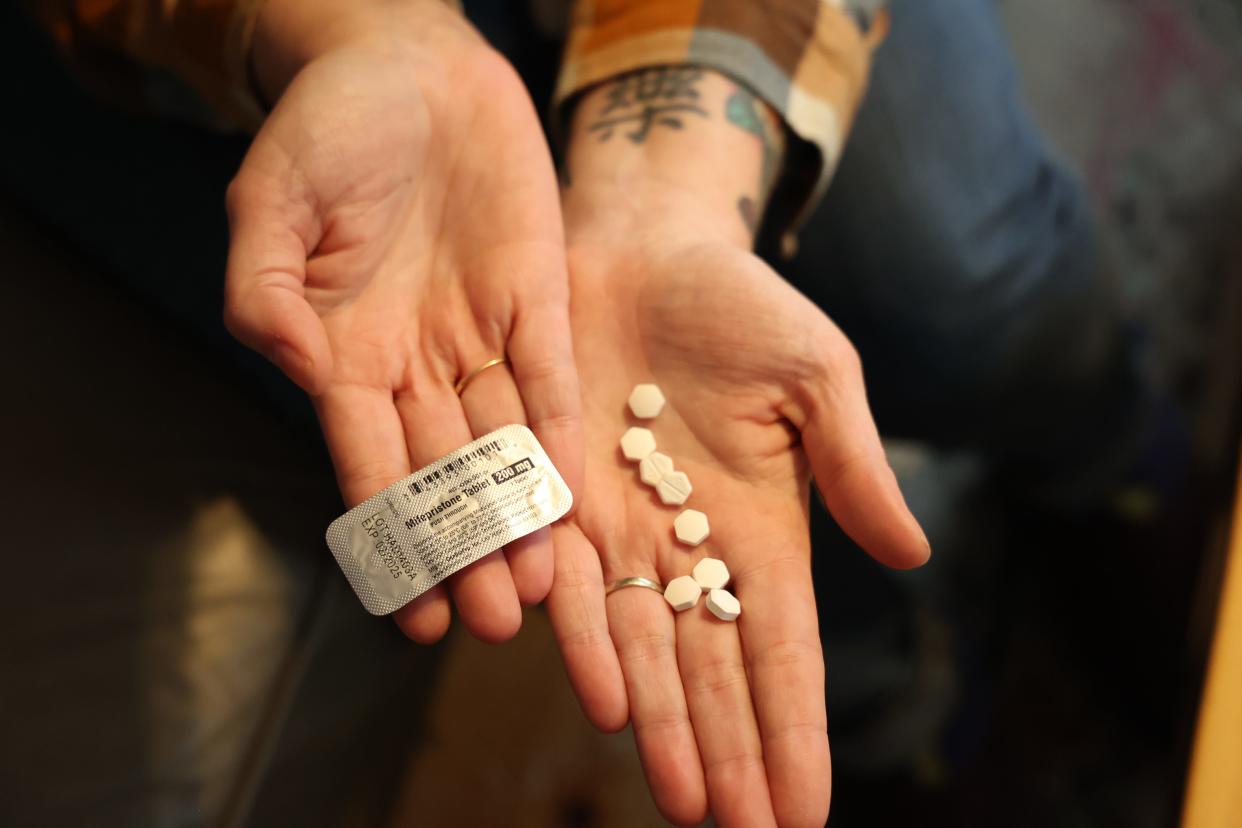SCOTUS' leaked Roe v. Wade opinion led to near tenfold increase in abortion pill demand, study shows

The number of Americans who weren't pregnant and wanted abortion pills increased nearly 10 times in the days after the Supreme Court's 2022 decision leaked, according to new research published this week in a medical journal.
A research letter published Tuesday in the JAMA internal medicine reported more than 48,000 requests for abortion pills were made between September 2021 and April 2023, based on data provided through a telemedicine provider. The researchers found that the telemedicine provider Aid Access saw a spike in requests in May 2022, after reports emerged that the Supreme Court would overturn Roe v. Wade, but ahead of the court's release of the decision the following month.
Prior to the leak, the service received about 25 requests each day for abortion pills. After the decision was leaked, that number rose to nearly 250.
Patients in states where an abortion ban was all-but certain after the ruling showed a nine-fold increase in requests, researchers said.
Legionnaires' disease: New Hampshire luxury resort linked to 2 cases, DPHS investigating
Report shows group with most advance provision requests
Researchers reported that women requesting abortion medication in advance were white, at least 30 years old, had no children and lived in urban areas or regions with less poverty.
"The most common reasons for requesting advance provision were to ensure the personal health and choice and to prepare for possible abortion restrictions," the report reads.
The demographic differences for requesting pills for advance provision or for a current pregnancy likely reflect structural barriers to reproductive health, including affordability and visibility, the study's authors said.
Supreme Court decisions on abortion pills
The Supreme Court decided on Dec. 13 to review an appellate ruling that significantly restricted use of mifepristone, repealing the Food and Drug Administration’s decision to make the pregnancy termination drug available through telemedicine and the U.S. mail.
The high court is expected to rule in the two mifepristone-related cases by June. If the majority determines the FDA overstepped its bounds by making abortion medication accessible through video appointments and mailed medicine, people would no longer be able to obtain these abortions in their first trimester remotely, regardless of state laws that protect access to abortion.
Experts said cases challenging the pill could threaten access for hundreds of thousands of patients in states where abortion is legal and protected and prevent remote prescriptions for patients in states where abortion is illegal.
What are mifepristone and misoprostol
Mifepristone and misoprostol are the most common drugs associated with medication abortions, which make up over half of all abortions performed in the U.S.
According to Planned Parenthood, mifepristone is the first pill prescribed by a doctor that blocks the progesterone hormone that pregnancy requires. Misoprostol is a second medicine taken typically at home 24-48 hours later that causes cramping and bleeding to empty the uterus.
"The abortion pill is very effective. For people who are 8 weeks pregnant or less, it works about 98 outof 100 times. From 8-9 weeks pregnant, it works about 96 out of 100 times. From 9-10 weeks, itworks 93 out of 100 times," the non-profit organization said.
How far along can you take the abortion pill
Planned Parenthood said medication abortion is an option up to 70 days or 10 weeks after the start of one's last period. By day 71, patients can visit a clinic to end a pregnancy.
Contributing: Adrianna Rodriguez and Karen Weintraub
This article originally appeared on USA TODAY: More abortions pills ordered ahead of possible pregnancy and bans

